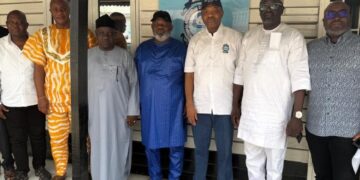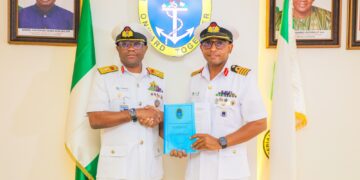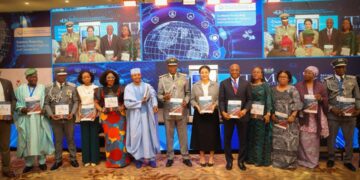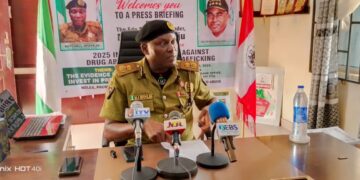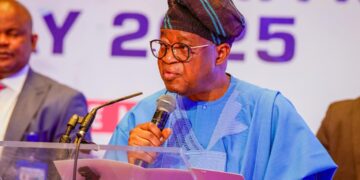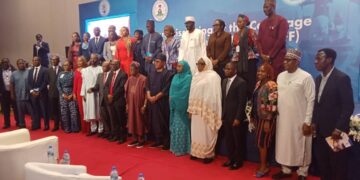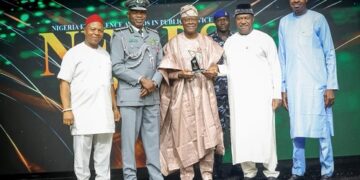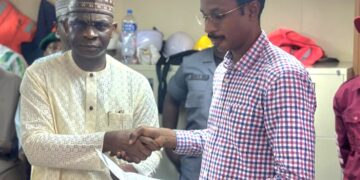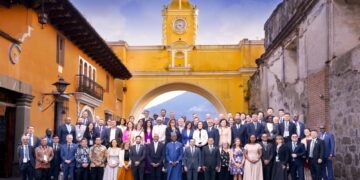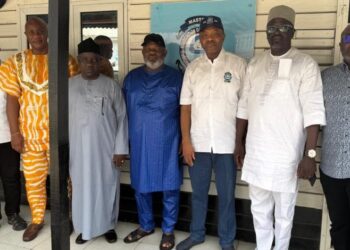Goethe-Institut Lagos, the German
Cultural Centre in Nigeria, welcomes a new Director, Friederike Möschel, to its
Lagos City Hall office.
Cultural Centre in Nigeria, welcomes a new Director, Friederike Möschel, to its
Lagos City Hall office.
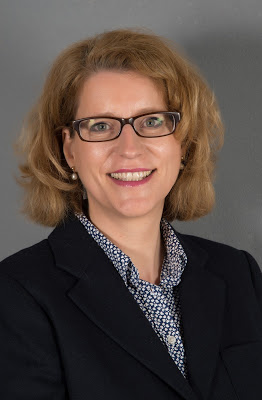 |
| Ms Friederike Möschel, Director, Goethe-Institut Lagos |
Ms Möschel, who should have arrived
in 2016, replaces Mr. Marc-André Schmachtel, whose term spanned five years
(November 2010 –June 2016). The one-year interval between her arrival and Mr.
Schmachtel’s departure was occupied by Mr. Alfons Hug. A curator and critic,
Mr. Hug had occupied the same position three decades ago.
in 2016, replaces Mr. Marc-André Schmachtel, whose term spanned five years
(November 2010 –June 2016). The one-year interval between her arrival and Mr.
Schmachtel’s departure was occupied by Mr. Alfons Hug. A curator and critic,
Mr. Hug had occupied the same position three decades ago.
Born in Munich, Friederike Möschel
grew up in Hamburg, Bonn and the city of her birth. She completed studies in
German and English Literature in Bonn, Heidelberg and Köln and taught at the
German Embassy School in Beijing, China for two years. Thereafter, she worked
for four years in the education sector in Hamburg before joining the
Goethe-Institut.
grew up in Hamburg, Bonn and the city of her birth. She completed studies in
German and English Literature in Bonn, Heidelberg and Köln and taught at the
German Embassy School in Beijing, China for two years. Thereafter, she worked
for four years in the education sector in Hamburg before joining the
Goethe-Institut.
The new director comes to Lagos
after a five-year term at the Institute’s Dubai office in the UAE, which she
was instrumental to founding; another two and a half years as director of the
language department at the Goethe-Institut Tashkent/Uzbekistan, and a
two-and-a-half year stint in Kiev/Ukraine, where she was in charge of the
regional co-ordination of the Eastern Partnership fund, and the implementation
of cultural projects in Ukraine. Taken together, Ms Möschel has now been with
the Institute for a decade.
after a five-year term at the Institute’s Dubai office in the UAE, which she
was instrumental to founding; another two and a half years as director of the
language department at the Goethe-Institut Tashkent/Uzbekistan, and a
two-and-a-half year stint in Kiev/Ukraine, where she was in charge of the
regional co-ordination of the Eastern Partnership fund, and the implementation
of cultural projects in Ukraine. Taken together, Ms Möschel has now been with
the Institute for a decade.
“It’ll
be quite different from my previous experiences,” the director said about her
new office, “but I’m looking forward to an exciting term.”
be quite different from my previous experiences,” the director said about her
new office, “but I’m looking forward to an exciting term.”
Since
1962, the Goethe-Institut in Nigeria has been a hub of cultural and artistic
activities, and for Friederike Möschel, who is just shy of a full month in
Lagos, a seamless transition is necessary.
1962, the Goethe-Institut in Nigeria has been a hub of cultural and artistic
activities, and for Friederike Möschel, who is just shy of a full month in
Lagos, a seamless transition is necessary.
“My
focus is to pick-up from where my predecessors left off,” she said, “and – in a
more diverse and impacting way – tap into the confidence, determination and
drive of the younger generation of Nigerian artists.”
focus is to pick-up from where my predecessors left off,” she said, “and – in a
more diverse and impacting way – tap into the confidence, determination and
drive of the younger generation of Nigerian artists.”
Ms
Möschel is familiar with Nigerian culture products: the country’s
literature, in particular. “Nigerian Literature is big out there,” she said,
adding that she reads Chimamanda Ngozi Adichie, Chinua Achebe, Helon Habila,
Lola Shoneyin and other Nigerian writers. “It would be ridiculous to say one
wants to improve on Nigerian Literature. But there are always openings for
grassroots development. I’d like to work with as many local art institutions
and corporations as possible at the grassroots level.”
Möschel is familiar with Nigerian culture products: the country’s
literature, in particular. “Nigerian Literature is big out there,” she said,
adding that she reads Chimamanda Ngozi Adichie, Chinua Achebe, Helon Habila,
Lola Shoneyin and other Nigerian writers. “It would be ridiculous to say one
wants to improve on Nigerian Literature. But there are always openings for
grassroots development. I’d like to work with as many local art institutions
and corporations as possible at the grassroots level.”
While Friederike Möschel might have
to get familiar with Nollywood and other aspects of the local culture, there is
one item she has formed an impression of. Asked what she thinks of Nigerian
food, Ms Möschel said, “Jollof Rice—spicy! And I love spice.”
to get familiar with Nollywood and other aspects of the local culture, there is
one item she has formed an impression of. Asked what she thinks of Nigerian
food, Ms Möschel said, “Jollof Rice—spicy! And I love spice.”


